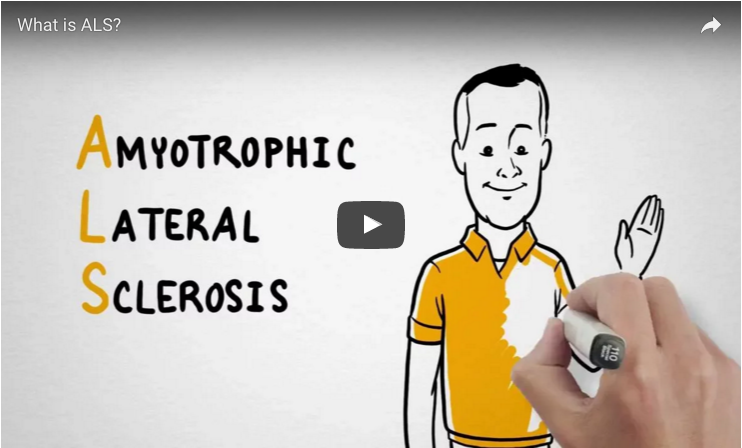In the early stages of ALS progression patients tend to have weak muscles. When respiratory muscles are.
 Explaining The Progression Of Als Als News Today
Explaining The Progression Of Als Als News Today
Stages of ALS Early Stages.

How does als progress. When the motor neurons die the ability of the brain to initiate and control muscle movement is lost. However since this is a progressive condition the symptoms develop and grow with more weakness or gradually decline ineffectiveness. Survival in bulbar-onset ALS is highly variable.
The disease is progressive meaning the symptoms get worse over time. Patients usually die of respiratory failure due to loss of diaphragm function. Amyotrophic lateral sclerosis ALS is a group of rare neurological diseases that mainly involve the nerve cells neurons responsible for controlling voluntary muscle movement.
How fast does als progress. For example if the left arm is affected the right arm may be affected next. The progression is steady and is not usually associated with remissions.
In ALS motor neurons begin dying. Voluntary muscles produce movements like chewing walking and talking. The onset of ALS on progressive supranuclear palsy patients is so subtle that the symptoms are incorrectly diagnosed for other conditions.
Its common to experience twitching and muscle cramping. Patients who also have ALS experience a gradual onset of its symptoms which include clumsiness fatigue loss of muscle control and spasticity as the ALS Association describes and those with the condition eventually lose the ability to move eat speak and breathe without assistance. ALS affects voluntary muscles.
Survival in bulbar-onset ALS is highly variable. In general the progression of ALS is rapid and this would seem the case being that the average survival at the time of diagnosis is just two to five years. The median survival is 3 - 5 years from diagnosis although rare cases of survival 10 even 20 years are reported.
A motor neuron is responsible for conducting an electro-chemical impulse to muscle fibers to cause those fibers to contract move. Als is a relentlessly progressive neuromuscular disorder. When the initial onset occurs in the lower limbs the progression of ALS tends to be slower than if the onset begins in the upper body.
As it progresses patients function and independence diminish. The fasciculations seem to be exacerbated by excercising the muscle although I also have random diffuse fascics. The progressive degeneration of the motor neurons in ALS eventually leads to their demise.
ALS typically progresses within the area first affected and then to adjacent contiguous regions. Motor neurons reach from the brain to the spinal cord and from the spinal cord to the muscles throughout the body. Once ALS starts it almost always progresses eventually taking away the ability to walk dress write speak swallow and breathe and shortening the life span.
Loss of muscle bulk is also common. The early stages of ALS are usually marked by muscle weakness tightness cramping andor twitching. Within the past three weeks I have gone from feeling strong and perfectly healthy to having muscle weakness fasciculations and cramps in my legs as well as weakness in my arms and cramps in my shoulders.
Half of the patients were referred to an inappropriate clinic prior to diagnosis. The time interval to the development of anarthria predicted the timing of subsequent loss of ambulation accurately from which survival may then be only a few months. The onset of ALS often involves muscle weakness or stiffness as early symptoms.
In the middle stages of ALS the muscle weakness becomes widespread throughout the body. Assuming there is progression there are up to 8 different patterns of spread. Eventually the patient loses control of all voluntary muscles and is completely paralyzed.
They might be weak and soft or they could also be stiff tight and spastic. Most commonly there is spread from one spinal or brainstem region to the next and across the region so that symptoms affect the other side of the body.
